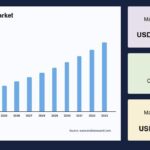In an era where every second counts and market tides shift with lightning speed, the fusion of artificial intelligence and mobile stock trading platforms is reshaping the way investors navigate financial landscapes. No longer confined to desktop terminals or reliant solely on human intuition, today’s traders carry powerful AI-driven tools in their pockets-tools that analyze vast data streams, anticipate market trends, and execute trades with unprecedented precision. This convergence not only democratizes access to sophisticated investment strategies but also ushers in a new chapter where technology and finance intertwine seamlessly, promising both opportunities and challenges for market participants worldwide.
The Evolution of AI Integration in Mobile Stock Trading Platforms

Mobile stock trading platforms have witnessed a remarkable transformation, fueled by the relentless advancements in artificial intelligence. Early versions relied primarily on basic algorithms to execute trades and provide market data. However, as AI matured, these platforms embraced advanced machine learning models and natural language processing, enabling them to offer real-time predictive analytics, personalized investment strategies, and intelligent risk assessment tools right at the user’s fingertips. The incorporation of AI-powered chatbots and voice assistants further simplified user engagement, making complex financial decisions more accessible to both novice and experienced traders.
Today’s AI integration extends beyond mere automation, embedding itself deeply in the decision-making core of trading apps. Features such as:
- Sentiment analysis to gauge market mood from social media trends
- Adaptive portfolio management that adjusts to changing market conditions
- Fraud detection algorithms that enhance security and trust
have become standard. This evolution is aptly reflected in the following comparison of AI capabilities over the last decade:
| Year | AI Feature | User Impact |
|---|---|---|
| 2014 | Basic Algorithmic Trading | Limited automation, manual inputs required |
| 2018 | Machine Learning Forecasts | Improved prediction accuracy, semi-automated trades |
| 2022 | Conversational AI Assistants | Enhanced user engagement, easier access to insights |
| 2024 | Sentiment & Risk Analytics | Proactive risk management, personalized alerts |
Enhancing User Experience Through Personalized AI-Driven Insights

Mobile stock trading platforms are revolutionizing how investors interact with the market by integrating AI technologies tailored to individual user behaviors. By analyzing historical trading patterns, risk tolerance, and portfolio composition, AI systems generate customized insights that empower traders to make smarter decisions faster. These personalized recommendations not only improve the accuracy of trades but also reduce the emotional biases frequently encountered in traditional investing, creating a smoother and more confident user journey.
To further enhance the experience, platforms employ features such as:
- Real-time sentiment analysis that alerts users to market trends based on social media and news feeds
- Adaptive learning algorithms that evolve with the trader’s style, fine-tuning advice with every transaction
- Intuitive portfolio dashboards offering dynamic visualizations and predictive metrics
| Feature | Benefit | Example |
|---|---|---|
| Sentiment Alerts | Stay updated on market mood shifts | Push notifications during volatility |
| Adaptive Recommendations | Personalized trade suggestions | Automatic risk adjustment |
| Visual Dashboards | Clear portfolio insights | Interactive charts and forecasts |
Leveraging Machine Learning for Real-Time Market Analysis and Predictions

Modern stock trading apps harness the power of machine learning algorithms to analyze vast volumes of market data instantly, enabling users to receive actionable insights without delay. These sophisticated models sift through historical trends, news sentiment, and live price fluctuations, identifying patterns that might elude even seasoned traders. By continuously learning from incoming data, they adapt to volatile market conditions, offering dynamic predictions that help investors make informed decisions on the fly.
Key advantages include:
- Real-time risk assessment based on evolving financial indicators
- Automated portfolio rebalancing recommendations tailored to individual goals
- Detection of anomalous trading activity and early market signals
| Feature | Benefit | Impact |
|---|---|---|
| Sentiment Analysis | Interprets news & social trends | Improves prediction accuracy |
| Adaptive Algorithms | Updates with latest market data | Enhances responsiveness |
| Risk Modeling | Quantifies potential losses | Supports better decision-making |
Best Practices for Secure and Ethical AI Implementation in Trading Apps

Ensuring security in AI-powered trading apps involves adopting a multi-layered approach that protects user data and trading algorithms alike. Regularly updating encryption protocols, performing rigorous vulnerability assessments, and employing robust authentication methods are essential. Additionally, transparent AI model governance helps maintain user trust by clearly communicating how trading decisions are made and how data is utilized. Incorporating secure data isolation techniques prevents unauthorized access, while continuous monitoring using AI-driven anomaly detection can swiftly identify and mitigate suspicious activities.
Ethical considerations demand a proactive stance on bias elimination, fairness, and accountability. Developers should prioritize training datasets that reflect diverse market scenarios, avoiding skewed predictions that could disadvantage specific user groups. Clear disclosure of AI limitations supports informed decision-making, empowering users rather than misleading them with implied guarantees of profit. Implementing an ethical oversight framework, featuring human-in-the-loop evaluations and regular audits, ensures algorithms operate within acceptable boundaries, fostering a responsible trading environment that balances innovation with integrity.
- Encrypt data at rest and in transit to prevent breaches
- Use multi-factor authentication for app access
- Deploy bias mitigation algorithms during model training
- Maintain audit trails for AI decision processes
- Conduct periodic ethical reviews of AI models
| Best Practice | Purpose |
|---|---|
| Data Encryption | Protects sensitive user info |
| Transparent Algorithms | Builds trust & clarity |
| Bias Audits | Ensures fairness |
| Regular Updates | Secures against new threats |
Key Takeaways
As the threads of artificial intelligence continue to weave deeper into the fabric of mobile stock trading platforms, the landscape of investment is transforming before our eyes. From personalized insights to lightning-fast decision making, AI is not just an add-on-it’s becoming the silent strategist in every trader’s pocket. While challenges around transparency and ethics remain, the fusion of human intuition and machine intelligence promises a future where trading is smarter, swifter, and more accessible than ever. In the evolving story of finance, AI is scripting a new chapter-one that invites both caution and curiosity as we navigate the markets of tomorrow.














